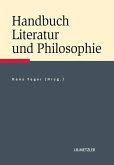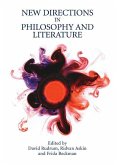Nietzsche's Die Geburt der Tragodie and Schiller's Asthetische Briefe are two texts which make a vital contribution to the history of aesthetic and cultural theory. This is the first work to make a comparative study of the texts, bringing a mutually illuminating perspective to bear on them. Dr Martin counters the widespread belief that Nietzsche and Schiller represent a black-and-white contrast, showing the wide extent of the early Nietzsche's debt to Schiller's aesthetics, and drawing a convincing picture of the common aesthetic ground shared by the two writers. The four key aspects of their aesthetic theories are compared: the brilliant diagnoses of cultural crisis; the historical framework of each theory; the catalytic function of the Greek experience in both theories; and the metaphysical and psychological underpinnings by which the theories stand or fall. At the heart of the study lie the claims of both Nietzsche and Schiller for the 'untimeliness' of their texts. Dr Martin concludes that, whatever the shortcomings of the texts, they remain outstanding and enduringly relevant contributions both to aesthetic theory and to our understanding of what it is to be human.
This book, the first to attempt a thorough comparison of Nietzsche's and Schiller's thought, examines their programmes to reform the individual through aesthetic experience, with reference primarily to Nietzsche's Die Geburt der Tragodie and Schiller's Asthetische Briefe. It counters the prejudice that Nietzsche and Schiller represent a black-and-white contrast, draws a convincing picture of their shared cultural heritage and assumptions, and assesses the nature and implications of their claims for the 'untimeliness' of aesthetic experience and of their proposed reforms to man and society.
Hinweis: Dieser Artikel kann nur an eine deutsche Lieferadresse ausgeliefert werden.
This book, the first to attempt a thorough comparison of Nietzsche's and Schiller's thought, examines their programmes to reform the individual through aesthetic experience, with reference primarily to Nietzsche's Die Geburt der Tragodie and Schiller's Asthetische Briefe. It counters the prejudice that Nietzsche and Schiller represent a black-and-white contrast, draws a convincing picture of their shared cultural heritage and assumptions, and assesses the nature and implications of their claims for the 'untimeliness' of aesthetic experience and of their proposed reforms to man and society.
Hinweis: Dieser Artikel kann nur an eine deutsche Lieferadresse ausgeliefert werden.








